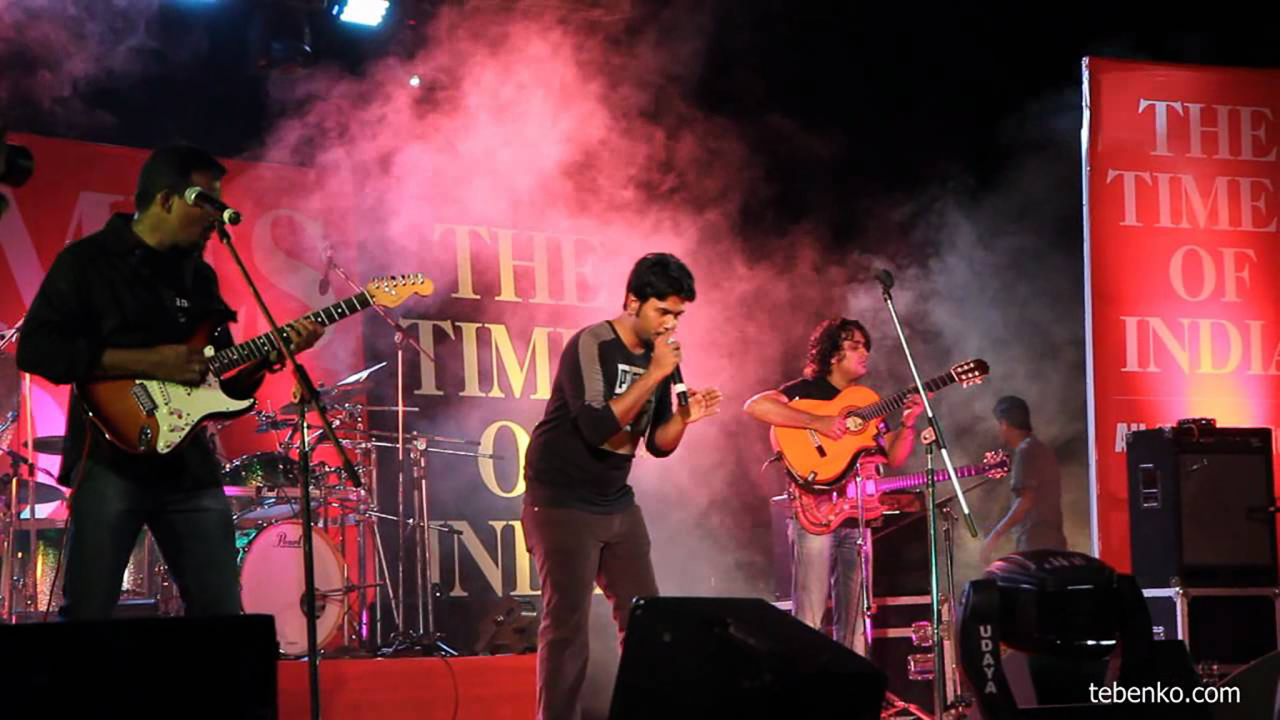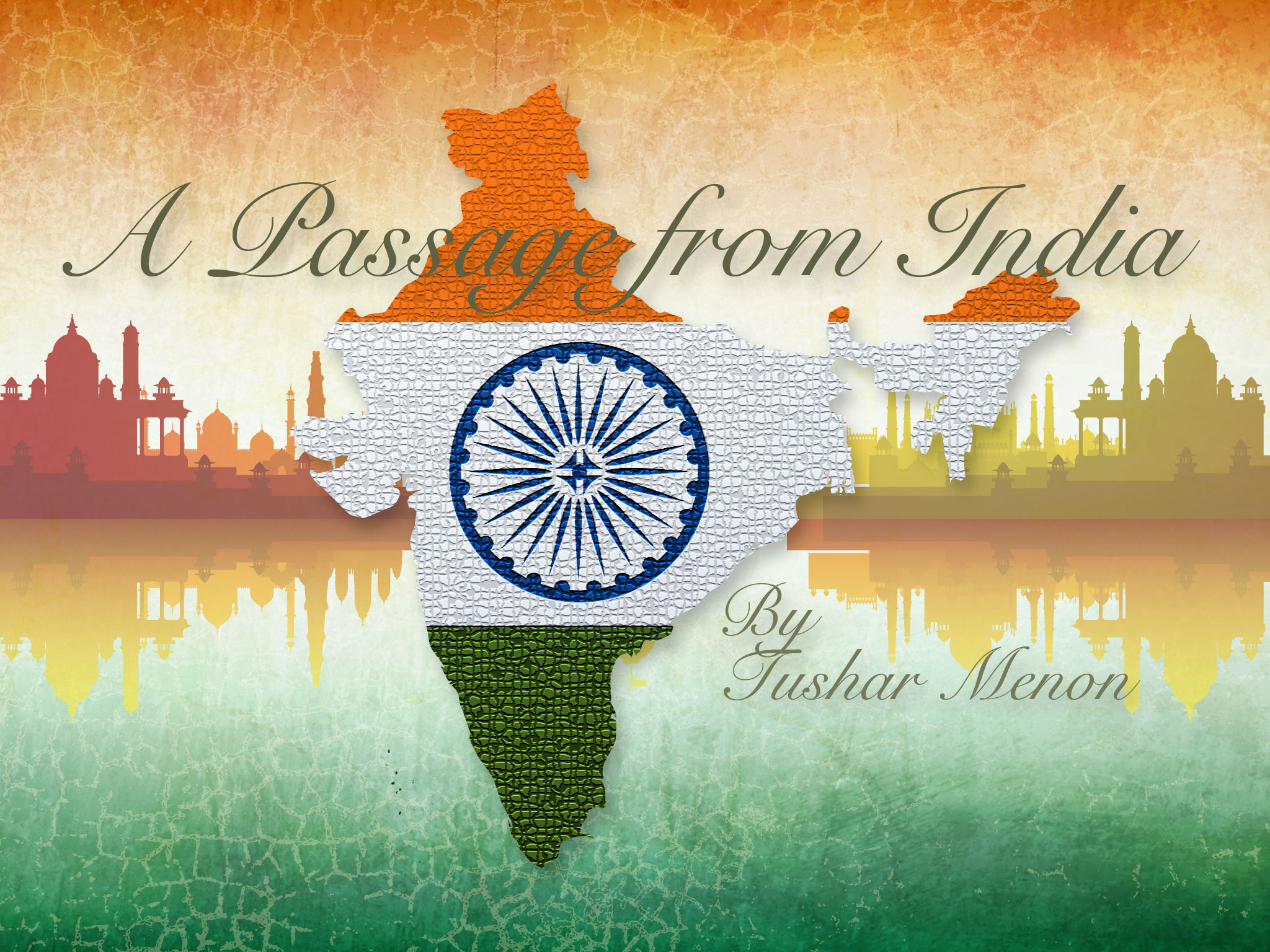This week Tushar introduces us to Motherjane from Kochi in Kerala…
Like so many people my age growing up in Bangalore, I discovered many of the bands that form the foundations of my musical taste through local cover bands. That sounds quite archaic from today’s point of view, when even the smallest inkling of a desire to listen to a band can be immediately sated by Spotify or iTunes, which are always accessible on some nearby device.
I am not going to wax nostalgic about how much better those days were- they were not. But one thing that I do miss about those days is that moment of revelation about a band or genre, singed into my memory, accessible at a moment’s notice even years later. The first time I heard Iron Maiden’s The Trooper, courtesy Bishop Cotton Boys’ School’s outstanding rock band, Pitch Black, of which I was briefly a member, there was no going back. My first experience of Randy Rhoads is especially vivid- guitarist Praveen David’s band at the time playing Crazy Train at Bangalore’s Sunday Jam (which Rainburn’s Vats Iyengar informs me carries on its hideous tagline ‘No Bread’).
The role of the rock band in Bangalore (and much of the rest of urban India) has changed considerably in the last decade and a half. If you played in a band, the standard question was ‘what bands do you cover?’ In a previous column, I mentioned the fact that the standard chant at the Sunday Jam was ‘Play some [insert 80s heavy metal band name here]!’ And bands were largely in the business of catering to that kind of audience (of which I was very much a part). Of course, there were exceptions- Thermal and a Quarter, based in Bangalore, had long been flying the flag for original music, along with the likes of Parikrama, Pentagram and Demonic Resurrection. But the turnaround in focus from the audience, from covers to original music, was a long time coming.

Although to try to pinpoint an exact moment when the turnaround started would be futile, I can clearly identify my moment of epiphany with Indian rock. That moment was the first Rock ‘n India Festival in Bangalore in 2008.
That festival was several firsts. It was the first iteration of the Rock ‘n India moniker, which continued for the next five years. It was Megadeth and Machine Head’s first gig in India. But, most importantly, it was also the first time a festival of this magnitude had been organised with a separate stage for Indian bands. Whereas Indian bands had routinely been given opening slots when international bands were in town (Parikrama’s stellar opening set for Iron Maiden leaps to mind), they were never even vaguely a focal point of such events. Rock ‘n India changed all of that for me. One band in particular grabbed me by the scruff of the neck and made me take notice, thanks, in large part, to the wildly original guitar work. The band was Motherjane, the guitarist Baiju Dharmajan.
They were supporting their recent album Maktub. Motherjane’s sophomore album was exciting for several reasons, not least of which was what it signalled for the future of the band. It is a truly progressive album, with top-notch performances from the whole band, although the star of the show is Dharmajan (whom regular readers of Passage from India might recall stole the show with one guitar solo on The Down Troddence’s debut album). The first minute of the album introduces much of what makes this album so compelling. This is Carnatic prog rock, and the opener, Chasing The Sun, serves as an archetype for this nascent genre, with its mridangam-rhythm in a repeating 5-5-9 pattern, leading to a guitar riff which the groove forward through several shifts in time signature. Dharmajan’s guitar comes into the spotlight halfway through in a crescendo of ostinatos characterised by his trademark wide vibratos and arpeggios. All this in just the first three minutes of the album sets the stage for an immersive and unique listening experience.
In conversation with Roine Stolt a few years ago, I joked that his output is so prolific that he must have several songwriters chained in his basement constantly at work. His response was that putting out new music regularly is the only way to stay afloat and, importantly, is the best way to keep people from forgetting about a band. The latter point is ironic, coming from a man who had recently put his main band on a five-year-long hiatus, but there is certainly more than a little truth to that. Unfortunately for Motherjane, circumstances dictated that, rather than capitalise on the success and quality of that album, the band ended up losing Dharmajan two years later, with no new music coming from their camp until earlier this year.
In January, the band released a single titled Clay Play, introducing the world to the new line-up featuring Nitin Vijaynath on guitar. The song is sure-footed and heavy, with promising signs for the band’s future. Dharmajan released a solo album in 2012, titled The Crossover, about which I will have much to say in a later installment of Passage from India. Much like when Neal Morse left Spock’s Beard or Peter Gabriel left Genesis, it is worth focusing on the fact that we now have twice as many albums to look forward to from the same group of musicians. I, for one, am not complaining.

